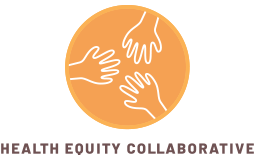23 Oct Celebrating National Healthcare Quality Week: A Focus on Health Equity
As we observe National Healthcare Quality Week this October, it’s essential to reflect on the critical role that healthcare quality plays in our communities, particularly through the lens of health equity. This week serves as a reminder that the pursuit of high-quality healthcare is not just about improving systems and processes; it’s also about ensuring that every individual, regardless of their background, has access to the care they need.
Understanding National Healthcare Quality Week
National Healthcare Quality Week, celebrated annually in the third week of October, highlights the importance of quality improvement in healthcare. It’s an opportunity for healthcare organizations to showcase their commitment to delivering safe, effective, and patient-centered care. This year’s theme focuses on innovation and collaboration, encouraging healthcare providers to think creatively about how they can improve patient outcomes.
The Intersection of Quality and Equity
Quality healthcare should be universal, but the reality is that not everyone has the same access or experiences within the healthcare system. Health equity refers to the idea that everyone should have a fair and just opportunity to be as healthy as possible. This means addressing the barriers that prevent certain populations—such as racial and ethnic minorities, low-income individuals, and those living in rural areas—from receiving high-quality care.
Addressing Disparities
During National Healthcare Quality Week, it’s vital to acknowledge the existing disparities in healthcare access and outcomes. For instance, studies consistently show that marginalized communities often face higher rates of chronic illnesses and poorer health outcomes. By prioritizing quality improvement initiatives that specifically target these disparities, healthcare providers can work towards a more equitable system.
Promoting Inclusive Practices
To enhance healthcare quality while promoting health equity, organizations can implement several inclusive practices:
- Cultural Competency Training: Providing training for healthcare staff on cultural competency can help ensure that all patients feel understood and respected, regardless of their background. This approach can lead to improved patient-provider communication and satisfaction.
- Community Engagement: Engaging with communities to understand their specific health needs is crucial. Partnerships with local organizations can help healthcare providers tailor their services to better meet the needs of underserved populations.
- Data-Driven Approaches: Collecting and analyzing data on health outcomes can help identify disparities and track progress over time. By focusing on equitable quality metrics, organizations can hold themselves accountable and make informed decisions about resource allocation.
- Policy Advocacy: Supporting policies that promote health equity—such as expanded access to insurance and healthcare services —can create a more just healthcare system. It’s up to us, as part of the community of the Health Equity Collaborative community, to leverage our voices to advocate for systemic changes that benefit marginalized communities.
Celebrating Progress and Setting Goals
As we celebrate National Healthcare Quality Week, it’s important to recognize the progress made in the realm of health equity. Many healthcare organizations have started to integrate equity into their quality improvement initiatives, leading to tangible results. However, there is still much work to be done.
This week provides a perfect opportunity for healthcare leaders to set new goals aimed at advancing health equity. Whether it’s through enhancing outreach efforts, increasing access to preventive services, or improving health literacy, every effort counts toward building a more equitable healthcare system.


